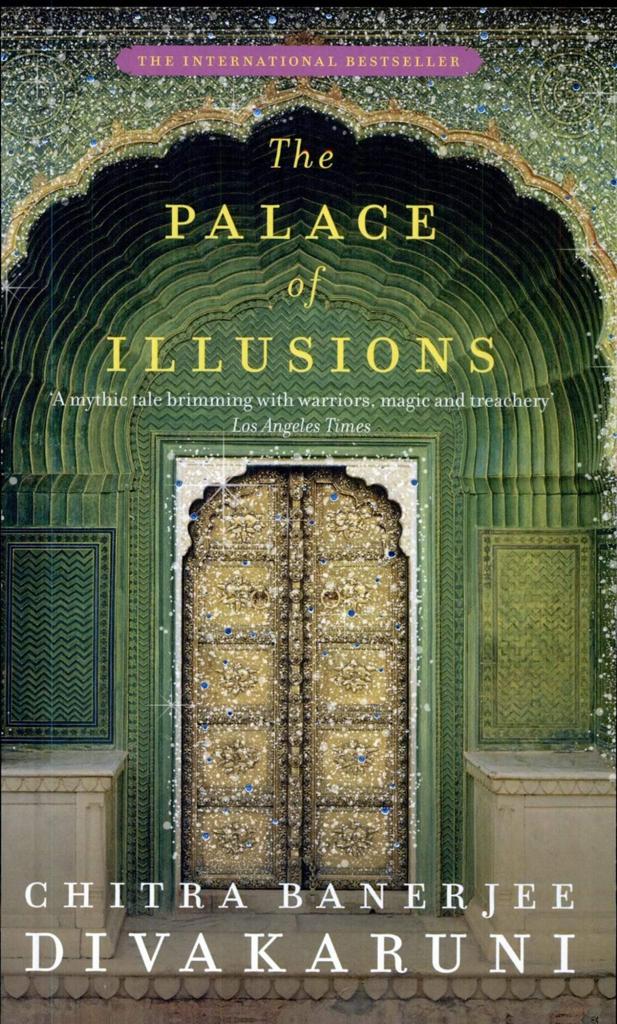The Palace of Illusions – A few thoughts
I was on a day long train journey the other day and found this book on my kindle app. Just about 15 years after it was published, I managed to read it.
Maybe that’s a good thing – I am not totally sure I would have liked it at that time. I had heard people criticising it for portraying Draupadi ’s love for Karna, and taking other liberties with the story.
Reading it now, I see how the story of Mahabharata told from Draupadi ’s point of view would have been slightly ahead of its time. It has unmistakable feminist themes and rightly so. When one starts looking at our epics and myths carefully, it’s easy to see it is the strong women that make the stories what they are, while the men get all the accolades and devotion.
 The story starts with Draupadi recounting her birth story and ends with her fall on the ascent to heaven. The use of palaces – her father’s, the one in Hastinapura and the palace of illusions she builds for herself – as strong metaphors for her life and state of mind struck me as wonderful. Draupadi’s growth and evolution from a girl to young bride to queen, as well as the dynamic relationship between her, Kunti and the five brothers is described in realistic, human terms. Her mystical relationship with her brother Dhrishtadyumna and her sakha Krishna is enchanting.
The story starts with Draupadi recounting her birth story and ends with her fall on the ascent to heaven. The use of palaces – her father’s, the one in Hastinapura and the palace of illusions she builds for herself – as strong metaphors for her life and state of mind struck me as wonderful. Draupadi’s growth and evolution from a girl to young bride to queen, as well as the dynamic relationship between her, Kunti and the five brothers is described in realistic, human terms. Her mystical relationship with her brother Dhrishtadyumna and her sakha Krishna is enchanting.
Needless to say, I liked it. I would recommend it to anyone interested in getting a different perspective. Moreover, while the point of view is different, the philosophical lessons of the epic remain equally relevant and strong.
I can also assure you there are no major deviations from the story as you know it, and the liberties taken are well within acceptable bounds from an author’s perspective. Draupadi is not portrayed as a helpless victim of the patriarchal politics around her but as a willing, enthusiastic, and adept participant with a strong mind of her own. That’s beautiful in itself.
Now that I think about it, maybe there is one single instance where I thought a couple of lines were out of character. That’s about it.
Now that I have read this, her writing that hagiography feels more of a betrayal. However, such is life, as Panchaali would tell you.